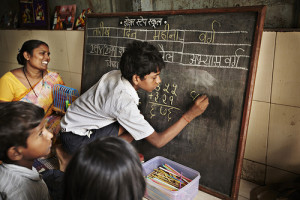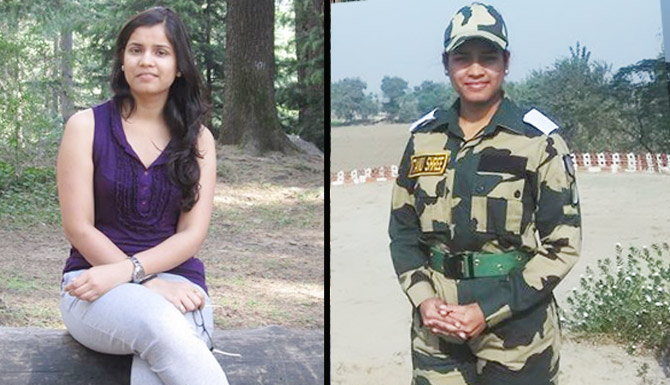I thought of monitoring the progress of a few underprivileged children in my area to help them keep track of their progress. To my utter dismay, most of them studying in eighth standard did not know how to read basic words and do the most elementary math, for example, division and multiplication. The textbooks were tough to cope up with, given the point they had to start picking things up from. Most of them had problems with writing their own name in English.
As per the ASER Report survey, 96.8 per cent of children between the age group of 6-14 years are now attending school.
The Centre’s decision not to hold students back in a class till eighth standard has certainly proved detrimental to many of them. The process of having to re-learn what you could not in a year’s time is better than dropping out of school after developing fear and aversion to studies. It shuts one off from the entire system of education in the future.
The infrastructure of education must be developed, the voice of the students while the teachers are teaching must be heard and not silenced, the students must be nurtured with care, love and freedom to think. To enroll them in schools and provide them with teachers is not enough. To get them their textbooks and put a tick against their name in the attendance register is not enough. To get meal schemes in a school is not enough. To bring technology inside the classroom is not enough if real communication between a teacher and a student is not taking place. A teacher fails the moment a student loses interest in her subject and fear takes over.
- There must be measures to develop feedback mechanisms from students which in turn must be paid careful attention to.
- There must be proper monitoring and inspection in the school.
- There must be provision for remedial classes in school.
- Tests must be conducted and taken seriously.
Most children are pressed to a standardized system of education which may not be cut out to meet their needs. Vocational training must be introduced along with basic educational skills.
The apathy of school personnel is almost shocking in most cases. The progress of each and every student must be tracked and their needs catered to. A student of eight standard not knowing how to multiply two numbers shows how we fail as an education system and how many brilliant minds put together cannot help a student learn basic mathematics.
 There must be provisions for a professional and dedicated student counsellor in every school. Growing minds need guidance to opportunities available for them for them to make informed choices about their future. The lack of an institution as such is a regressive step in the system of education we provide to the children.
There must be provisions for a professional and dedicated student counsellor in every school. Growing minds need guidance to opportunities available for them for them to make informed choices about their future. The lack of an institution as such is a regressive step in the system of education we provide to the children.
Schools must have a healthy environment for learning, discussing and debating ideas for which teachers and school personnel must play an active role. We are talking about the future minds of the country. We are talking about making a generation of better human beings. It must not be taken in a lighter note.
Children and Education : Image courtesy : plan.org.au



























Good one.It only points out that we really need quality education and reminds me of my father who had less education(British time) but his communication skill was very good and used to write correct English
Indian education system is considered to be a production house of the crammers and not the inventors. There is no doubt that Indians are making a difference across the globe with their talent and knowledge but that is not even a percent of an entire population. We must take care of not just the urban private institutes but take a note about the rural India as well. Luring offers like mid-day meal must not be the only concentrated idea but the real meaning of education must be catered.